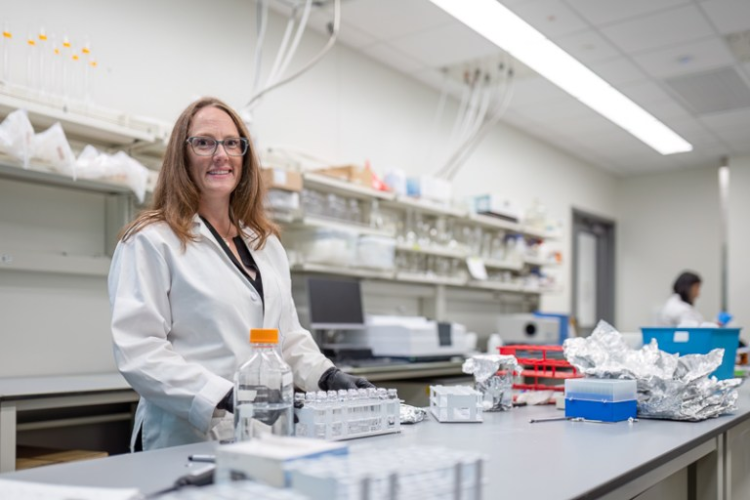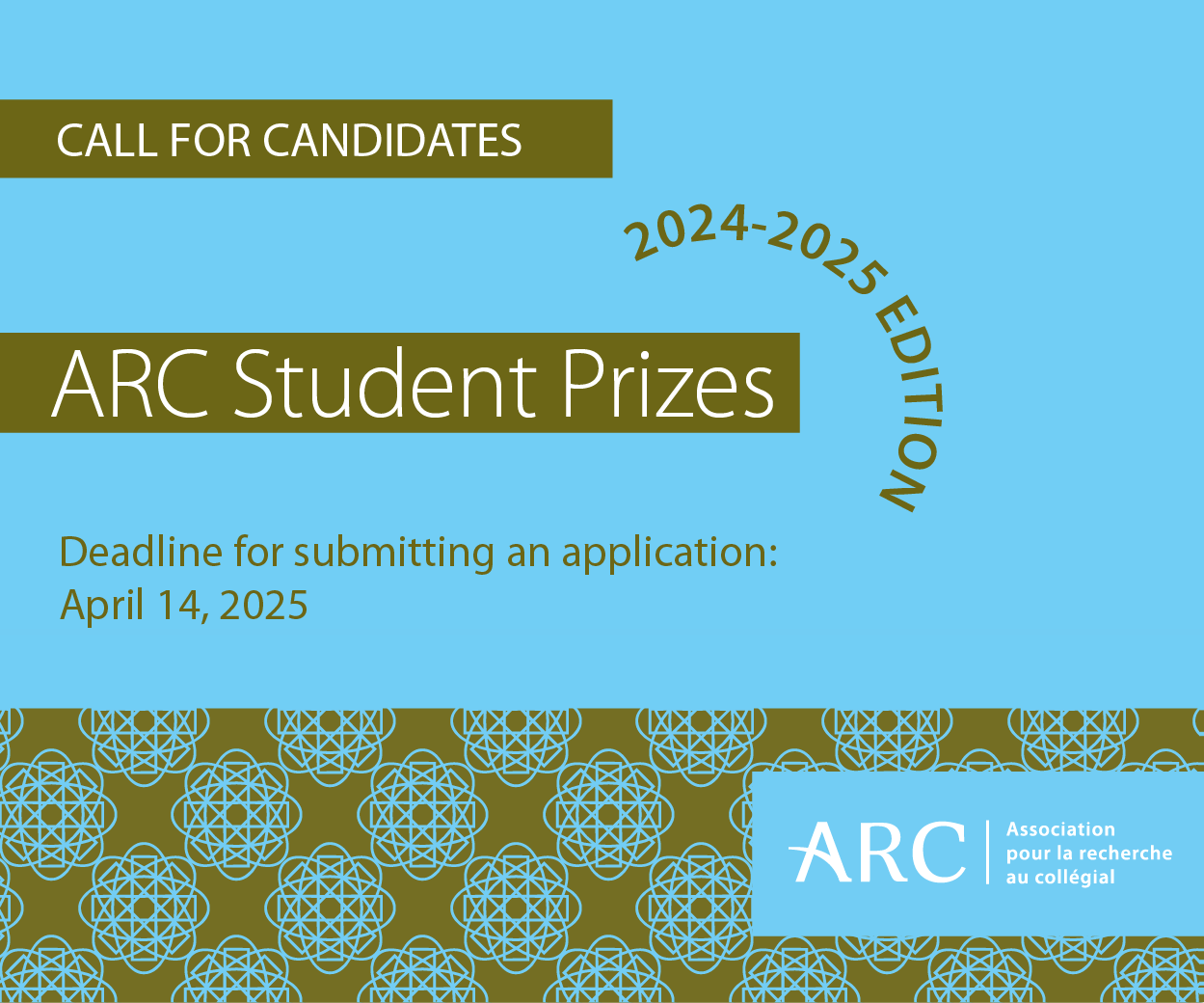The ocean absorbs 25 per cent of anthropogenic carbon emissions and plays a critical role in maintaining our climate.
This includes carbon dioxide, the most concerning carbon form associated with human activities.
The global ocean holds approximately 50 times more carbon than the atmosphere. Ninety-seven per cent of organic carbon in the ocean is dissolved, referred to as dissolved organic matter, or DOM.
For perspective, that's 32 times as much carbon than is in all living organisms in the ocean, from the tiny phytoplankton to the blue whales.
Very little is known about the individual chemicals that make up dissolved organic matter, making determining its role in the global carbon cycle challenging.
That's where Dr. Heather Reader comes in.
Chemistry of the ocean and atmosphere
In June 2024 Dr. Reader was renewed as Memorial's Tier 2 Canada Research Chair in chemistry of the ocean and atmosphere. She was originally appointed in 2019.
Canada Research Chair appointments are among the country's highest honours for research excellence.
Tier 2 chairs are valued at $100,000 per year for five years, with the possibility of one five-year renewal.
In addition, the Canada Foundation for Innovation is investing $75,000 to support Dr. Reader's research program through its John R. Evans Leaders Fund, as part of its partnership with the Canada Research Chairs program.
The Government of Newfoundland and Labrador is investing an additional $87,782 in this project. This investment will bring new state-of-the-art instrumentation to Memorial for training and research.
Dissolved matter matters
Dissolved organic matter, or DOM, is chemically very complex, and functions in very different ways in marine ecosystems.

Dr. Heather Reader with her ocean water samples. Photo: Rich Blenkinsopp
Applying statistical approaches to complicated chemical datasets, Dr. Reader is developing smarter ways of tracing where dissolved organic matter comes from, how it has interacted with the marine ecosystem and where it will end up in the future.
From coastal systems to the open ocean, Dr. Reader uses novel combinations of chemical analysis to unlock the secrets of dissolved organic matter and the role it plays in the ocean's carbon cycle.
"DOM is very interesting in this region," she said. "Here in Newfoundland and Labrador, we have high DOM concentrations both in rivers and the coastal ocean. In the open ocean, we have interesting biological and physical processes that make this region of the Northwest Atlantic that contribute to the global carbon cycle.
"I want to know where the DOM comes from and where it goes to determine the role it plays in carbon cycling and carbon sequestration in the ocean," she added.
The development of new methods to analyze the chemical nature of this carbon will allow for better monitoring of shifts in marine ecosystems and will lead to a more complete understanding of the part that the oceans play in our complex physical world.
Dr. Reader collaborates with fellow Canada Research Chair Dr. Uta Passow, Department of Ocean Sciences, who is researching the Labrador Sea biological carbon pump.
Cruising for samples
A large part of Dr. Reader's research takes place at sea, collecting samples and performing experiments.
"I can help shine a spotlight on not just my work, but everyone's." Dr. Heather Reader
She and her students spent three weeks on the Labrador Sea last year collecting dissolved organic matter present there.
"Luckily, we had 14 straight days of good weather and managed to get every planned sample. Now, we have 300-400 samples for optical analysis and organic carbon analysis. We are heading back in May this year to investigate the spring bloom and its impact on carbon cycling."
After a period of cancellations and deferrals due to the COVID-19 pandemic, Dr. Reader and her team spent more time at sea in 2024 than the previous four years.
They also participated in cruises in the Pacific Ocean and Baffin Bay, cataloging more samples for further analysis.
Expanding Memorial research
The designation of Canada Research Chair provides more research opportunities, wider recognition for Memorial and builds a strong academic reputation, says Dr. Reader.
"The program is a great opportunity, and I'm very thankful the chair was renewed. It means the hard work that me and my students have put in has been recognized by our peers."
Dr. Reader is passionate about supporting and elevating her students' successes and ensuring equitable representation in the employment of MUCEP students.
She currently supervises seven graduate students and two undergraduate students.
She says it's exciting to see the students "doing their thing, writing their thesis" and going on to their own careers.
Dr. Reader also wants to use her position to elevate Memorial's research reputation.
"There are a number of Canada Research Chairs and researchers at the university that are doing incredible work. I can help shine a spotlight on not just my work, but everyone's."
CRC program
The Canada Research Chairs Program stands at the centre of a national strategy to make Canada one of the world's top countries in research and development.
The program is a tri-agency initiative of the Social Sciences and Humanities Research Council, the Natural Sciences and Engineering Research Council and the Canadian Institutes of Health Research. It is administered by the Tri-agency Institutional Programs Secretariat.












